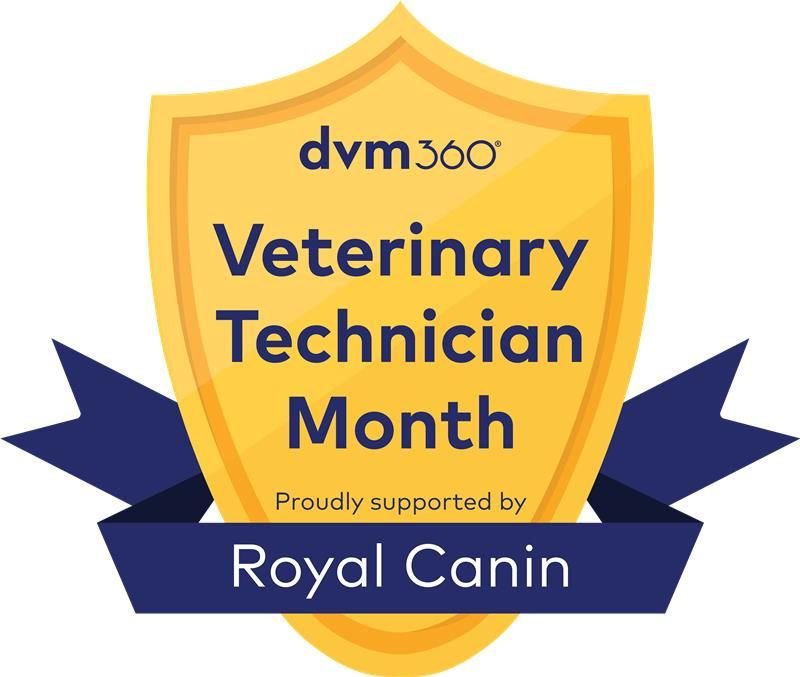Q&A with a veterinary technician educator: Continuing the vet tech conversation
Danielle Chesek, CVT, emphasizes the need for better utilization, title protection, and fair compensation for veterinary technicians during National Veterinary Technician Week.

With nearly 2 decades of experience in veterinary medicine, Danielle Chesek, CVT, is currently the team lead for the Veterinary Academy at Penn Foster, where she helps train and mentor future technicians. Before transitioning to education, Chesek spent years in clinical practice, including almost a decade as a surgical technician working with a range of animals.
dvm360: From your perspective as a vet tech and an educator, what do you think are the most important conversations people should be having during National Veterinary Technician Week?
The 3 biggest things that I would want to talk about this week would be:
- Better utilization of veterinary technicians.
- Title protection
- Compensation
Going back to the utilization of technicians, we are educated professionals, and we should be utilized as such when we go out into the workforce. Right now, many clinics may not be doing that. They may be underutilizing technicians, and that contributes to this mindset with veterinary technicians, where [we're] not really being empowered...to do what we were trained to do.
[Empowering technicians] not only helps the clinic, but [it also] helps the veterinarian. [Veterinarians] are able to focus more on their responsibilities; the technician feels better utilized, more empowered, and they're going to probably seek more advancement opportunities as a result. So, better utilization of technicians is truly No. 1.
Title protection is also a very important conversation to have this week and every week. Right now, anybody could say that they're a veterinary technician, and it's to the point where we really need to be recognized as veterinary technicians. Not only would this help with compensation, but it would also [provide] the title recognition that we deserve. We put a lot of work into having the title of veterinary technician, so it should be protected. And we should be able to do all the duties and responsibilities that we are trained to do and...are educated on.
Then compensation...is something that, for a really long time, wasn't really talked about, but conversations regarding compensation are becoming more widespread. Right now, veterinary technicians are not being paid appropriately, and that makes them not want to advance or take other opportunities if they're not going to be adequately compensated.
With that, I do believe that if we are paying our technicians appropriately, that's going to empower them [and] help them stay in the field. They're not going to have to go find other jobs to make a living; they're going to be able to support themselves, their families, and just have that time they can take to themselves. I know the field is stressful in a way, as far as this career goes, so having the compensation conversation is just really important. That way, everybody knows technicians need to be paid appropriately.
dvm360: You lead the remote veterinary technician program at Penn Foster. How would you say education is evolving to prepare technicians for today’s veterinary landscape?
When I went to vet tech school for my associate's degree, that was 20 years ago, and a lot has changed since then. I feel like right now, we are definitely attempting to meet the needs of today's workforce, really having practical applications that are based [on] real-world scenarios—a lot more than when I went to school. This is preparing students to do their externships, go into the workforce, and be prepared.
Right now, Penn Foster is...creating accessible, affordable education for students. We are a distance learning program [for] students [who] may not be able to afford veterinary technician programs normally. Maybe it's a nontraditional student [and] they are already working in the field. This makes up a very large part of our student population.... We are really focusing on those things and reaching technicians [who] may not have otherwise had the opportunity.
When it comes to curriculum, there are many changes that have also taken place. We are now focusing on burnout, mental health, and compassion fatigue. When I went to school, those things weren't really discussed, and over the years, you realize how much of a toll [this takes] on technicians. So with that, we are incorporating those topics into our curriculum, making sure that students are aware of what to look for if they are susceptible to burnout, and making sure that their mental health is a priority.
Compassion fatigue is another one—just knowing the signs to look for when they are in practice, and making sure they know the resources available.
dvm360: What changes do you think need to happen to make career pathways for veterinary technicians clearer and more rewarding?
Like I said, better utilization of technicians—that’s No. 1. I feel like we can't really get to any of the other stages unless we first recognize that they have to be utilized more appropriately and...[have] roles for technicians that align with their education and experience, and where they are compensated appropriately.
We also want to make sure that technicians are aware of all of their options and [do so] early on—whether they go into a government job, education, research, or practice management. What does that look like for them, and how are they going to obtain that information to make that happen?
I'm also a big advocate of leadership pathways. Some employers do actually have this opportunity for technicians—whether that be training, free courses, tuition reimbursement, [or] anything like that. [We must] allow them to really take that next step into leadership courses to become a leader—not just a veterinary technician—[and] incorporate that into what they're doing and allow them to practice as such.
dvm360: Is there anything we didn’t cover that you’d like to add?
I do see so many opportunities right now for veterinary technicians, especially with the new generation of students entering the field with a better understanding of mental health—that’s so important. I would [also] like to see defined roles so that technicians can move forward and pursue their VTS [veterinary technician specialist credential] or whatever options they want.
I’d also like to see clinics be more empowering to technicians. If there is somebody who wants to pursue their [VTS] opportunity, [I would like to see clinics] mentor and empower [the technician] in such a way that they feel successful doing that.
I just really want to continue all those conversations, and I hope that in doing so, we can advance the field. I'm optimistic that with the increased conversations about technician recognition and advancement opportunities, we are going in the right direction as a field in general.
This interview has been edited for length and clarity.
